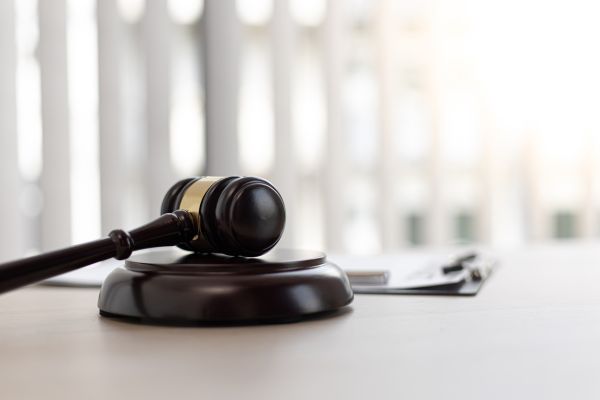It’s a rapidly expanding digital environment that is changing how we connect, socialize, play, and even work. No longer is this science fiction, but complex problems, especially those that revolve around Intellectual Property Rights (IPR), arise as the virtual world continues to expand. Although the collective virtual shared environment of the metaverse presents important legal issues regarding ownership, copyright, patents, and trademarks, it also opens up new avenues for businesses, entrepreneurs, and innovators. This blog will cover the implications of intellectual property in the metaverse, the way in which existing IPR laws are being tested, and potential modifications to handle this emerging field. (Goh, 2022)
What is the Metaverse?
The term “metaverse” refers to an immersive digital world where customers can buy and sell virtual products, create new content, and interact with the environment as well as other users with avatars. It combines the real world with the virtual world of VR and AR to create a more persistent online environment than social media and games. (Placeholder1)
Users can engage in a range of activities in the metaverse, including creating digital art, buying virtual real estate, attending virtual concerts, and socializing with others through virtual reality simulations. Many high-profile websites, including Roblox and Meta’s Horizon Worlds, are becoming popular destinations for users to engage in these activities. The growing metaverse raises new questions about the application of existing intellectual property laws to virtual assets. (khan, 2022)
IP Challenges in the Metaverse
Since the metaverse is a totally digital ecosystem, intellectual property law is complicated in many ways. Traditional IP rules were not developed with virtual worlds in mind, even though intellectual property is supposed to protect works of art, inventions, trademarks, and designs. This is why the rapid development of the metaverse requires a reconsideration of how existing intellectual property regimes can be used or changed to protect artists in this new setting.
1. Ownership of Digital Products
Ownership of virtual goods is one of the main intellectual property issues for the metaverse. Digital art, clothing, and virtual environments, are all examples of digital assets. In the metaverse, dividing ownership is much less clear as compared to in the real world.
For example, such virtual assets as NFTs (non-fungible tokens) that have the form of unique digital goods, such as music or art, or even some virtual real estate, are becoming highly popular. Although the concept of ownership is more flexible in these cases, they can still be bought, sold, and traded.
The blockchain technology does, on several occasions, allow consumers to purchase such goods, but the question remains if they own the IP rights of the product or if the original author owns it.
When a person buys a physical product in the real world, they are likely to become the owner of the product. However, when a person buys a virtual product in the metaverse, it does not necessarily mean that the buyer becomes the owner of the underlying trademark or copyright. The decentralized nature of the metaverse, where users are permitted to modify, distribute, and exchange virtual assets, clashes with conventional IP legislation.
2. AI-created content and copyright
Another critical issue related to the metaverse is the maintenance of copyright. In the old sense, authors of creative works like music, art, and novels have protection under copyright laws. What happens if content is created by non-human or artificial intelligence authors? AI is commonly used in the metaverse to develop interactive experiences and virtual art.
Currently, who has the rights to it, is the author of this piece under traditional copyright law. However, due to the fact that AI doesn’t have legal personhood, AI cannot own copyrights, which further makes the process more complex regarding works created by AI. A legal loophole arises from that. Who owns the copyright to this AI-generated digital art? The creator of AI? The person who fed commands to AI? Or perhaps the hosting platform of the content?
The authorship and ownership issues are critical for creators in the metaverse to be able to safeguard their intellectual property. Without defined regulations, AI-driven innovation may lead to disputes over ownership of creative works, thereby undermining the rights of human creators. (McCaffrey, 2021)
3. Brand and Trademark Protection
Trademarks play a critical role in the protection of brand identities in the metaverse especially since more companies are opening their virtual worlds. It is already being done for online stores by companies like Samsung, Gucci, and Nike that are selling virtual goods and yet there are new difficulties in the protection of trademarks in online environments.
A brand risks trademark infringement when it operates in the metaverse. Users can easily replicate and modify branded objects in virtual spaces. For example, counterfeit products that appear like authentic brands can be sold in virtual markets. Conventional methods of trademark protection, such as lawsuits and cease and desist orders, may not suffice in a virtual environment where several jurisdictions intersect. (Nass, 2021)
Also, it will be possible that trademark legislation needs to be amended and adapted for virtual goods and services. Are the rights which companies hold over their own physical product and emblems the same over their intangible, digital products? This is an issue which will be brought into relief as companies set up their internet presence in the metaverse.
The Existing Law and Its Limitations
Current intellectual property laws are being tested in real time as the metaverse evolves. The digital world, much less a massive virtual ecosystem like the metaverse, was not considered when current intellectual property laws were drafted. Applying, modifying, or expanding these rules to meet the particular requirements of virtual places is a challenge for legislators and legal experts.
Even though the present legal framework for such scenarios as the patent law, trademark law, and Digital Millennium Copyright Act (DMCA), are in existence today, these were not developed with the metaverse in mind. Metaverse is a decentralized model that expands itself perpetually, which is an exercise beyond conventional rules of rules.
For instance, issues such as prosecuting trademark infringement across international virtual platforms or enforcing copyrights for virtual goods can become more complicated. Users of websites like Decentraland and The Sandbox often hail from several countries, each with its own legal system. This creates a complex web of potential legal issues, especially when a virtual product is sold to a global audience or crosses national borders.
Reform Is Needed: A New Legal Structure for the Metaverse
The issues require amendment or supplementation of existing intellectual property rules to be sensitive to special features of the metaverse. These are some of the potential reforms:
1. Introduce New Forms of Legal Classification for Digital Assets
One possible solution is the development of new legal classifications for virtual assets and digital goods in the metaverse. For example, legislators may introduce special legislation for virtual property, which recognizes that ownership of virtual assets is different from that of real property. This will make it easier to enforce intellectual property rights in virtual settings and clear up the legal status of virtual items.
2. Reformations of Trademark and Copyright Laws
It is possible to adapt the existing copyright and trademark laws to accommodate AI-generated content and virtual goods. For instance, there can be special provisions for AI-generated works where the copyright owner can be the platform owner or the AI developer. Similarly, legislation can be modified to offer better protection for virtual trademarks on the internet. (Ponsford, 2022)
3. International Cooperation on Virtual Intellectual Property Rights
Because the metaverse is transnational, international cooperation is needed to establish standardized regulations for the protection of intellectual property in virtual worlds. Groups such as WIPO (World Intellectual Property Organization) may be of great help in establishing global guidelines for IP protection in the metaverse.
Conclusion
The metaverse is a really interesting and rapidly evolving digital frontier that has immense possibilities for people, companies, and creators. However, it also poses serious intellectual property rights issues. Some of the problems that must be addressed include ownership of virtual commodities, copyright protection, trademark defense, and the need for legislative reforms.
The legal landscape will have to evolve as the metaverse grows if creators and companies are to protect their intellectual property and flourish in this new digital landscape. We can only ensure the metaverse is a space where innovation, creativity, and commerce may thrive by enacting deliberate and proactive legal reforms.
References
- Goh, R. (2022). Virtual Ownership and Copyright in the Metaverse. Journal of Digital Law, 8(3), 214-231.
- Khan, F. (2022). Virtual Property Rights: Legal Frameworks for Digital Goods in the Metaverse. Harvard Law Review, 135(4), 459-472.
- McCaffrey, J. (2021). The Intersection of Copyright and AI in Digital Art Creation. Legal Technology Today, 19(2), 80-95.
- Nass, C. (2021). Intellectual Property in Virtual Worlds: An Overview of Current Issues. Journal of Intellectual Property Law, 23(1), 33-45.
- Ponsford, D. (2022). WIPO and the Challenges of International IP Protection in the Metaverse. Intellectual Property World, 12(4), 245-259.
Author: Aniket Shivaji Shinde is a student at Symbiosis International Deemed University (Specialization: LL.M. in Business and Corporate Law)







